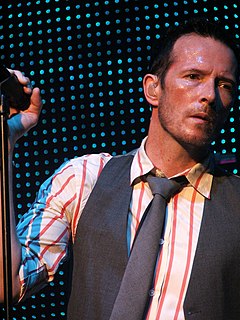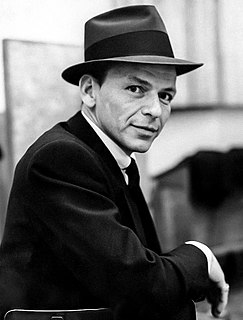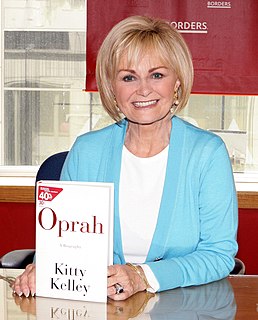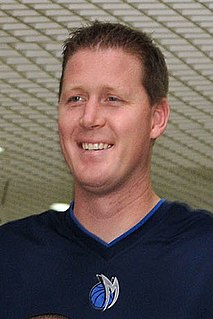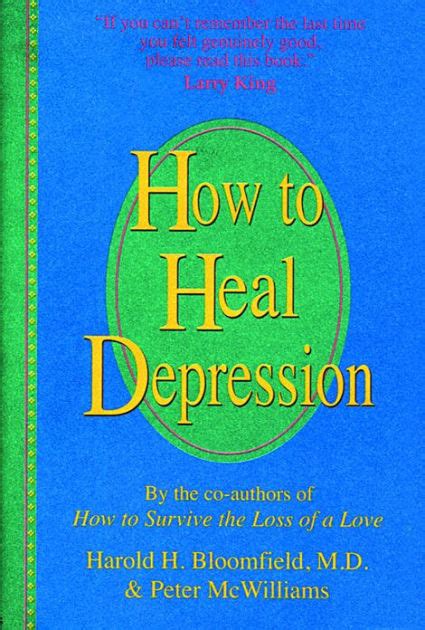Top 121 Depressive Quotes & Sayings - Page 2
Explore popular Depressive quotes.
Last updated on April 18, 2025.
Moms that get evicted are depressed and have higher rates of depressive symptoms two years later. That has to affect their interactions with their kids and their sense of happiness. You add all that together, and it's just really obvious to me that eviction is a cause, not just a condition, of poverty.
I spoke so much about being a manic-depressive. I want to bring everyone back to my earliest memories of this companion of mine. Some people call this companion I have an ailment, or worse a terrible nightmare from which some people cannot awaken. I know that I have nothing to be ashamed of. I have nothing that should garner a stigma.
Nature is, above all, profligate. Don't believe them when they tell you how economical and thrifty nature is, whose leaves return to the soil. Wouldn't it be cheaper to leave them on the tree in the first place? This deciduous business alone is a radical scheme, the brainchild of a deranged manic-depressive with limitless capital. Extravagance! Nature will try anything once.
I would you say 25-50 percent is the likelihood that my cause of death will be suicide. Not because I am depressive but because I don't attach any moral baggage to suicide, and I have no religion to hold me back. I think suicide is our right, though I think we need to exercise it with knowledge that it can hurt others. So my assumption is that if I got a fatal disease, I'd end things before I got really sick.
I contemplate the idea that maybe I'm an alcoholic. I get this occassionally, the need to define myself as something-or-the-other, and at various times in my life have wondered if I'm a Goth, a homosexul, a Jew, a Catholic or a manic depressive, whether I am adopted, or have a hole in my heart, or possess the ability to move objects with the power of my mind, and have always, most regretfully, come to the conclusion that I'm none of the above. The fact is I'm actually not ANYTHING.
If I read something that's really intense and depressive, I will face it; I will try - but there's plenty of times I also run away. I think it's trying to find a balance between the positive and the negative. They don't exist without each other. It's the polarity; it's two sides of a coin. You can't get one without the other. I don't wallow. I can't stand it.
Selling your apartment in New York is like dating a manic-depressive.. you get used to cycles of elation and despondency. Every time someone would come to see the apartment, there was the thrill of the date. You want to be presentable, so you clean the place up, make sure it smells good, put on some mood lighting and mellow music.
One of the great tragedies of life, it seems to me, is when a person classifies himself as someone who has no talents or gifts. When, in disgust or discouragement, we allow ourselves to reach depressive levels of despair because of our demeaning self-appraisal, it is a sad day for us and a sad day in the eyes of God. For us to conclude that we have no gifts when we judge ourselves by stature, intelligence, grade-point average, wealth, power, position, or external appearance is not only unfair but unreasonable.
Far too many doctors-many of them excellent physicians-commit suicide each year; one recent study concluded that, until quite recently, the United States lost annually the equivalent of a medium-sized medical school class from suicide alone. Most physician suicides are due to depression or manic-depressive illness, both of which are eminently treatable. Physicians, unfortunately, not only suffer from a higher rate of mood disorders than the general population, they also have a greater access to very effective means of suicide.
The Chinese believe that before you can conquer a beast you first must make it beautiful. In some strange way, I have tried to do that with manic-depressive illness. It has been a fascinating, albeit deadly, enemy and companion; I have found it to be seductively complicated, a distillation both of what is finest in our natures, and of what is most dangerous.
Antidepressant medications, you still have some depressive thoughts. Antipsychotic medications, you still have some psychotic symptoms for the vast majority of the people taking them. But it gives them a little separation, and it doesn't control his behavior as much when you have a sad feeling, difficult thought, an odd perceptual experience. We can teach people those exact skills in therapy, you get longer-term benefits and without the side effects. So don't be sold just because a commercial interest wants to sell you things.
Despite popular opinion, there are no important parallels between Madonna and Monroe, who was a virtuoso comedienne but who was in secure, depressive, passive-aggressive, and infuriatingly obstructionist in her career habits. Madonna is manic, perfectionist, workaholic. Monroe abused alcohol and drugs, while Madonna shuns them. Monroe had a tentative, melting, dreamy solipsism; Madonna has Judy Holliday's wisecracking smart mouth and Joan Crawford's steel will and bossy, circus master managerial competence.
I think that feminism permits women to speak among themselves, instead of simply being resentful, having personal complaints, which get them nowhere and which make them sick and ill-tempered, depressive and poison the lives of their husbands and children. It's much better to arrive at a collective consciousness of this problem, which is both a kind of therapy and the basis for a struggle.
I have often asked myself whether, given the choice, I would choose to have manic-depressive illness. If lithium were not available to me, or didn't work for me, the answer would be a simple no... and it would be an answer laced with terror. But lithium does work for me, and therefore I can afford to pose the question. Strangely enough, I think I would choose to have it. It's complicated.
I don't think it's very healthy to hold people to idealized views. I think that's a certain stage in life, something kids do. You have to go through that idealistic phase with your parents, but at a certain point, you need to see people as just people. And everyone's pretty similar. I think if you're in the showbusiness, like any high-stakes business, the highs and lows can make you a manic-depressive person, if you weren't that way to start with. 'Cause it's just so crazy on your psyche. A lot of it has to do with people thinking they're greater than someone else.
When you read the [Twilight series], it's like saying 'Edward Cullen is so beautiful I creamed myself'. I mean every line is like that. He's the most ridiculous person who's so amazing at everything. I think a lot of actors tried to play that aspect. I just couldn't do it. And the more I read the script, the more I hated this guy, so that's how I played him, as a manic-depressive who hates himself. Plus, he's a 108-year old virgin, so there's clearly some issues there
Depressive lucidity, usually described as a radical withdrawal from ordinary human concerns, generally manifests itself by a profound indifference to things which are genuinely of minor interest. Thus it is possible to imagine a depressed lover, while the idea of a depressed patriot seems frankly inconceivable.
The tragedy of a species becoming unfit for life by over-evolving one ability is not confined to humankind. Thus it is thought, for instance, that certain deer in paleontological times succumbed as they acquired overly-heavy horns. The mutations must be considered blind, they work, are thrown forth, without any contact of interest with their environment. In depressive states, the mind may be seen in the image of such an antler, in all its fantastic splendour pinning its bearer to the ground.
Depression, when it's clinical, is not a metaphor. It runs in families, and it's known to respond to medication and to counseling. However truly you believe there's a sickness to existence that can never be cured, if you're depressed you will sooner or later surrender and say: I just don't want to feel bad anymore. The shift from depressive realism to tragic realism, from being immobilized by darkness to being sustained by it, thus strangely seems to require believing in the possibility of a cure.
Something which is against natural laws seems to me rather out of the question because it would be a depressive idea about God. It would make God smaller than he must be assumed. When he stated that these laws hold, then they hold, and he wouldn't make exceptions. This is too human an idea. Humans do such things, but not God.
My stay in Camp Betty was the longest I'd been without drink or drugs in my adult life. [...] At first, they put me in a room with a guy who owned a bowling alley, but he snored like an asthmatic horse, so I moved and ended up with a depressive mortician. [...] The mortician snored even louder than the bowling alley guy - he was like a moose with a tracheotomy.
At heart, I have always been a coper, I've mostly been able to walk around with my wounds safely hidden, and I've always stored up my deep depressive episodes for the weeks off when there was time to have an abbreviated version of a complete breakdown. But in the end, I'd be able to get up and on with it, could always do what little must be done to scratch by.




















